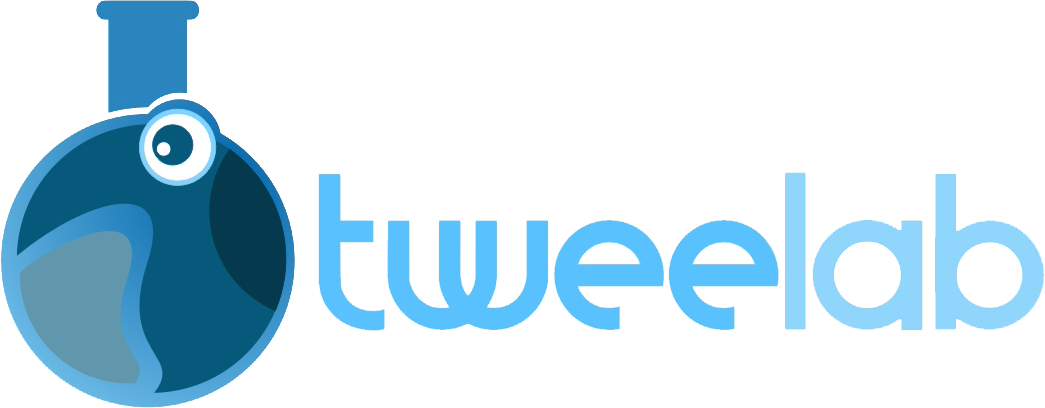Hey there, fellow bloggers! Are you looking for ways to monetize your blog and turn it into a lucrative business venture?
Well, look no further than digital product ideas. By creating and selling digital products on your blog, you can not only generate income but also establish yourself as an authority in your niche.
Digital products come in all shapes and sizes – from ebooks to online courses to printables – the possibilities are endless. And with more people turning to the internet for information and resources, the demand for quality digital products is higher than ever before.
So why not capitalize on this trend by exploring some of these lucrative options for bloggers? In this article, we’ll dive into some top digital product ideas that can help take your blogging game to the next level.
Ebooks: Creating And Selling Your Own Written Content

You have a wealth of knowledge and expertise as a blogger. Why not create an ebook to share that with the world?
Ebooks are one of the most popular digital products on the market, offering bloggers a lucrative opportunity to monetize their content.
Marketing strategies can help you reach your target audience and increase sales. Consider promoting your ebook through social media platforms or email marketing campaigns. You could also offer free samples or exclusive discounts to entice potential buyers.
When it comes to pricing models, there are many options available. You could choose a fixed price for your ebook or utilize tiered pricing based on additional features such as bonus material or personalized coaching sessions.
Determine what works best for you and start generating income from your written content today!
Online Courses: Sharing Your Expertise In A Structured Format

Creating an online course is one of the most lucrative digital product ideas for bloggers who want to share their expertise in a structured format. With interactive modules, you can provide your audience with valuable insights and tips that they can apply in real life situations.
In addition to offering informative content, you can also include group coaching sessions where participants can ask questions and receive personalized feedback. This creates a sense of community among your followers, which enhances engagement and loyalty.
Overall, an online course is an excellent way to monetize your blog while providing value to others. By leveraging your knowledge and skills, you can create a sustainable income stream and establish yourself as an authority in your niche.
Printables: Offering Customizable Templates And Designs

After sharing your expertise through online courses, you can also offer customizable planners and printable wall art.
Let’s say that Sarah is a successful blogger who specializes in productivity tips. She has noticed that her audience often asks for tools to help them stay organized and on top of their tasks.
To cater to this demand, Sarah decides to create customizable planners that her readers can download and print out themselves. She chooses different templates for daily, weekly, and monthly planning, ensuring that each one fits the needs of various individuals. Additionally, she adds motivational quotes and graphics to make each planner unique.
Here are some benefits of offering customizable planners and printable wall art:
- They provide an additional source of income.
- They require minimal effort once created.
- They serve as free advertising when shared on social media by customers.
Overall, bloggers have many digital product options available to monetize their expertise. Customizable planners and printable wall art are just two examples that allow bloggers to tap into new markets while providing valuable resources to their followers.
Webinars: Hosting Live Events For Your Audience

Webinars are a great way to connect with your audience and provide an interactive experience. Hosting live events allows you to engage in real-time conversations, answer questions, and build rapport with your followers. Additionally, webinars can help establish yourself as an authority figure within your niche.
When it comes to monetization strategies for webinars, there are several options available. One popular method is to charge for access to the event or offer premium content exclusively to attendees. Another option is to promote affiliate products during the webinar or sell related digital products after the event.
To ensure success with webinars, it’s important to have a clear plan of action. This includes choosing a topic that will resonate with your audience, promoting the event through various channels, and engaging participants throughout the presentation.
With careful planning and execution, hosting webinars can be a profitable addition to any blogger’s digital product offerings.
Podcasts: Sharing Audio Content With Your Community

As we wrap up our discussion on hosting live events through webinars, let’s shift our focus to another engaging digital product: podcasts.
Imagine sitting comfortably with your headphones plugged in as you listen to an expert sharing their insights on a topic that interests you. That’s the beauty of podcasts – learning and entertainment rolled into one.
Monetizing podcasts is no longer just a pipe dream for bloggers. By creating valuable content and building a loyal podcast community, bloggers can generate revenue through sponsorships, affiliate marketing, or even selling exclusive access to premium episodes. However, success doesn’t come overnight; it requires consistency, creativity, and dedication.
Building a loyal podcast community takes effort but pays off in the long run. Engage with your listeners by encouraging feedback and answering their questions.
Promote your podcast across social media platforms and collaborate with other podcasters in your niche to increase exposure. Remember that your audience should always be at the forefront of everything you do when creating digital products like podcasts.
Templates And Tools: Providing Resources To Streamline Processes

Design resources and automation tools can be a valuable addition to any blogger’s toolkit. By providing templates for social media graphics, blog post layouts, and email newsletters, bloggers can save valuable time that would otherwise be spent designing from scratch.
Automation tools such as scheduling software and email marketing platforms also help streamline processes, allowing bloggers to focus on creating content rather than administrative tasks.
When it comes to design resources, there are many options available online. Some sites offer free templates while others require a subscription or one-time payment. It’s important to research the quality of these resources before investing in them, as poorly made designs may not reflect well upon a blogger’s brand.
Additionally, customization options should be considered – some templates may be too limiting for certain types of content.
Automation tools can also vary in price and functionality. Scheduling software like Hootsuite or Buffer allows bloggers to plan out their social media posts ahead of time, freeing up more time during the workweek.
Email marketing platforms such as Mailchimp or ConvertKit automate the process of sending newsletters and promotional emails to subscribers. Again, research is key – choosing the right tool will depend on factors such as budget and specific needs.
Affiliate Marketing: Promoting Products And Services For Commission

Templates and tools can make blogging a more efficient process, but the real success comes from building relationships with your audience. Finding your niche is crucial to creating content that resonates with readers and keeps them coming back for more.
But what if you could monetize those relationships and niche interests? Enter affiliate marketing. Affiliate marketing allows bloggers to promote products and services relevant to their audience while earning a commission on sales made through their unique referral link.
But it’s not as simple as slapping an ad on your site and waiting for cash to roll in. Choosing which products or services to promote requires careful consideration of both their relevance to your audience and potential profitability. Once you’ve chosen the right product or service, negotiating commissions can be a delicate dance between maximizing earnings without alienating your audience.
It’s important to strike a balance between promoting valuable offerings and avoiding overwhelming – or even annoying – followers with too many ads. With some strategic planning, however, affiliate marketing can become a lucrative revenue stream for any blogger looking to build their brand online.
Researching popular niche interests within your target demographic, building personal connections with trusted affiliates, tracking analytics data to measure success, and creating valuable content that promotes affiliate products in a genuine and authentic way can all contribute to a successful affiliate marketing strategy.
Key Takeaways
- Monetizing blogs through digital products can be a lucrative business venture.
- Ebooks, online courses, printables, webinars, podcasts, templates and tools, and affiliate marketing are popular digital product ideas for bloggers.
- Thorough market research and understanding the target audience are crucial for determining successful digital products.
- Proper pricing, design, and content quality are essential factors for successful digital product creation and sales.
- Effective marketing through social media promotion and influencer marketing can boost digital product sales.
- Legal considerations such as copyright protection and fair pricing should be kept in mind.
- Handling customer support and feedback can be outsourced to ensure prompt and professional responses.
Frequently Asked Questions
How Do I Determine What Type Of Digital Product Would Be Most Successful For My Blog?
To determine the most successful type of digital product for your blog, it’s essential to conduct thorough market research and identify your target audience.
This involves analyzing trends within your niche, surveying your readership, and gauging their willingness to pay for different types of content or services.
By understanding what your audience needs and wants from you, you can create a product that meets those demands while also aligning with your brand values and expertise.
Whether it’s an e-book, course, membership site, or app, the key is to provide value that resonates with your followers and solves a problem they have been struggling with.
With careful planning and execution, you can turn your blog into a profitable platform for sharing knowledge and building community around shared interests.
What Are Some Common Mistakes Bloggers Make When Creating And Selling Digital Products?
When it comes to creating and selling digital products, bloggers often make some common mistakes. One of the biggest is not properly pricing their product. It’s important to consider factors such as production costs, competition, and perceived value when setting a price point.
Another mistake is neglecting design and branding. Your target audience wants something that looks professional and visually appealing. Don’t skimp on the aesthetics!
Lastly, content creation should be top priority. Make sure your digital product offers valuable information or solves a problem for your audience. By avoiding these mistakes, you’ll increase your chances of success in the world of digital product creation and sales.
How Can I Effectively Market And Promote My Digital Products To My Audience?
If you want to increase your digital product sales, the most effective way is through social media promotion and influencer marketing.
By leveraging your existing audience on different platforms like Facebook, Instagram or Twitter, you can generate a buzz around your products that will attract more potential customers.
Influencers with large followings provide great opportunities for exposure because they have audiences who trust them and are likely to make purchases based on their recommendations.
It’s important to remember that promoting your digital products requires a strategic approach – just posting about it won’t cut it.
Instead, create engaging content that showcases the value of what you’ve created while also highlighting how it solves problems for your target market.
With the right strategy in place, social media promotion and influencer marketing can help take your digital product sales to new heights!
What Are Some Legal Considerations I Should Keep In Mind When Creating And Selling Digital Products?
When creating and selling digital products, there are a few legal considerations you should keep in mind.
Firstly, it’s important to ensure that your product is protected by copyright laws so that others can’t steal or plagiarize your work.
Additionally, pricing strategies should also be considered as you want to make sure that your product is fairly priced for your audience while still being profitable for you.
It’s always best to consult with a lawyer to ensure that all of the necessary legal protections are in place before launching any digital products.
How Do I Handle Customer Support And Feedback For My Digital Products?
When it comes to handling customer support and feedback for digital products, outsourcing support can be a helpful euphemism for alleviating the burden on your own time and resources.
While negative feedback may seem daunting at first, it is important to handle it with grace and professionalism in order to maintain a positive reputation among your consumers.
By utilizing third-party support services or software, you can ensure that all inquiries are being addressed promptly while still having the ability to monitor and respond as needed.
Overall, finding the right balance between efficient support and constructive feedback can greatly benefit both your product’s success and overall brand image.
Final Thoughts
So there you have it, a comprehensive guide to exploring lucrative digital product ideas for bloggers.
Remember that determining the type of digital product that would be most successful for your blog requires some research and analysis.
Avoid common mistakes such as not understanding your audience or overselling your product.
Marketing and promoting your digital products effectively is essential to their success.
Utilize social media platforms and email marketing strategies to reach out to potential customers.
Additionally, keep in mind legal considerations when creating and selling digital products, such as copyright infringement and privacy laws.
One anticipated objection may be the fear of handling customer support and feedback for your digital products.
However, addressing any issues promptly and providing excellent customer service can lead to positive reviews and repeat business.
So don’t let this concern hold you back from pursuing potentially lucrative opportunities!
With dedication, hard work, and attention to detail, you can create valuable digital products that meet the needs of your audience while generating income for yourself.

